
ELECTRIFYING
VIRGINIA
.png)
Electrifying Virginia is a statewide campaign with communities and organizations to educate and engage Virginia residents on the benefits and cost savings of Electric Vehicles (EVs).
Join the EV-Revolution and power up your drive in Virginia! Learn more about EVs and let's break the myths. Make the switch to EVs and pave the way for a cleaner, greener future in Virginia.

Register
Virginians excited about the Electrifying Virginia Partnership
Virginia EV Dashboard

Sign the Petition
Virginia is for EV L vers
The Road Ahead is Electric!
We, the undersigned, believe in the importance of a cleaner, healthier, and more economically vibrant future for the Commonwealth of Virginia. By committing to the continued adoption and support of electric vehicles (EVs), we can achieve significant health, environmental, and economic benefits for all Virginians.
The benefits of embracing electric vehicles are clear:
-
Jobs and Economic Growth: The EV industry brings new jobs, investments, and innovation to Virginia, driving economic growth and ensuring a prosperous future for the Commonwealth.
-
Financial Saving: EV owners benefit from lower fuel and maintenance costs. EV drivers spend half as much to repair and maintain their vehicles as owners of gas-powered cars do, according to Consumer Reports. Driving an electric vehicle in Virginia is equivalent to $1 per gallon of fuel, resulting in significant long-term savings and contributing to overall financial benefits for consumers and businesses. Choosing an EV can save drivers up to $12,000 over the life of the vehicle when compared to owning a comparable gas-powered vehicle.
-
Energy Independence and Sustainability: EVs support using renewable energy sources, decreasing reliance on fossil fuels and promoting energy independence. They reduce demand on foreign oil, where 70% of the U.S.'s demand comes from the transportation sector, and are powered through domestically produced energy, potentially through renewable energy sources.
-
Improved Public Health: Reduced emissions from EVs lead to cleaner air and fewer health problems related to air pollution. A widespread transition to electric vehicles could result in nearly $30 billion in public health benefits in Virginia and avoid 115 premature deaths, more than 1,780 asthma attacks, and nearly 8,190 lost workdays each year.
We are calling on the Commonwealth of Virginia to prioritize the electrification of transportation and show their support for initiatives that promote alternative transportation options. Sign the petition for a cleaner, greener Virginia that remains on a path to prosperity. Let's move VIRGINIA forward, not backward.
Add your voice to the call for a better future

What's an EV?
Electric vehicles, also known as EVs, are automobiles powered by electricity stored in rechargeable batteries instead of traditional internal combustion engines. They offer several advantages over conventional vehicles, including reduced greenhouse gas emissions, improved energy efficiency, and quieter operation. Electric vehicles come in various forms, ranging from all-electric models that solely rely on battery power to plug-in hybrid vehicles that combine battery power with an internal combustion engine. These vehicles are multimodal, ranging from e-bikes to heavy-duty freight trucks.
Did you know?
As more and more cities around the country aim to reduce their carbon footprint, it is likely that Electric Vehicles have become an increasingly important part of the transportation ecosystem.
These Auto manufacturers that have set all EV targets by 2030: BMW, Ford, General Motors, Honda, Hyundai, Mazda, Nissan, Stellantis, Subaru, Toyota, Volkswagen, and Volvo.
Virgnia has joined 16 other states and Washington D.C. in adopting Clean Car Standards and has set a mandate that all new vehicles sold in VA must be electric by 2035. In addition, Virginia passed a Total Cost of Ownership law that requires the state to consider total cost of vehicles when purchased and must purchase electric vehicles over gas vehicles where the total cost is less


Going Electric in
VIRGINIA
Electric vehicles (EVs) have emerged as a game-changer in the automotive industry, offering an eco-friendly and sustainable mode of transportation. In Virginia, USA, EV adoption has gained significant momentum, reshaping the way people commute and contributing to the state's environmental and economic goals.
Drivers are leading the way toward a greener and better future, and the state of Virginia is committed to supporting them. By going electric, Virginia drivers will experience COST SAVINGS through lower maintenance costs and fuel savings, AFFORDABILITY through charging discounts, exclusive company bonuses, and government incentives to help keep money in their pockets all while making communities in Virginia HEALTHIER and SAFER.
The Partners
VIRGINIA EV 101
Incentives and Benefits of EVs


EV Charger Rebate
Danville Utilities gives residential customers a $200 rebate for purchasing and installing a Level 2 EV charging station. To qualify, you must also enroll in their time-of-use rate.


The different types of

Battery-Electric Vehicles (BEV)
Battery-Electric Vehicles (BEV):
Battery Electric Vehicles (BEVs) are powered by an electric motor and use a large battery pack to store energy. They do not have an internal combustion engine and therefore produce no tailpipe emissions. BEVs rely entirely on charging from an external power source, such as a wall outlet or charging station.
Plug-in Hybrid Electric Vehicles (PHEVs):
Plug-in Hybrid Electric Vehicles (PHEVs) have both an electric motor and an internal combustion engine. They can run on electricity alone for a certain distance, after which the internal combustion engine kicks in and the vehicle functions like a regular hybrid. PHEVs can be charged from an external power source or can use the internal combustion engine to recharge the battery.

Plug-in Hybrid Electric Vehicles (PHEVs):

Hybrid Electric Vehicles (HEVs):
Hybrid Electric Vehicles (HEVs)
Hybrid Electric Vehicles (HEVs) also have both an electric motor and an internal combustion engine, but they cannot be charged from an external power source. Instead, they rely on regenerative braking to recharge the battery and can use the internal combustion engine to generate electricity. HEVs typically have smaller batteries and shorter all-electric ranges than PHEVs.

Multimodal E-Mobility in Virginia
Electric School Bus Program
There are currently 44 school districts in Virginia that are deploying 260 school buses across the state.
Dominion Energy is supporting the EPA’s Clean School Bus Program by offering charger and grid support for schools that receive EPA funding out of the $5 billion available in the program. Replacing diesel buses with electric buses reduces air pollution, lowers costs for schools, and increases safety for students and drivers. 10 school districts in VA have been awarded over $31 million through the EPA for 80 buses. Lynchburg City, Carrol County, Powhatan County, Wise County, Grayson County, Charlotte County, Franklin City, Goochland County, Floyd County, and Lee County School Districts were all awarded buses through the EPA’s Clean School Bus Program.
Check out Dominion Energy's School Buses


Medium and Heavy Duty Electrification
Up to $40,000 Tax Credit towards the purchase of a Medium and Heavy Duty Vehicles. Incentives up to $200,000 per vehicle port dray truck operators. The State of Virginia joined a multi-state agreement to have 30% of medium- and heavy-duty vehicles be zero-emission by 2030, and 100% by 2050.
Rideshare, Rental Cars, and Fleets
Rental companies including Hertz, Enterprise, Avis, Sixt and more offer a range of EVs to rent for drivers. Rideshare companies such as Uber and Lyft are also making commitments to make their fleets 100% EV and helping their drivers make the switch.Towns such as Virginia Beach are also investing in EVs to offer residents to use as part of a rideshare platform in the city.


Micro-mobility
Virginians can also take advantage of other forms of electric mobility such as electric bikes and scooters. Virginians can take advantage of these micro mobility options in Arlington, Alexandria, Richmond, Norfolk, Charlottesville, and Fairfax. Arlington County requires micro mobility companies to place at least 13% of their devices in Equity Emphasis Areas.
Different EVs at Various Price Points
Prices as of 2024 and are subject to change

Nissan Leaf
Starting at $28,040
Volkswagen ID.4
Starting at $38,995
Chevy Bolt EUV
Starting at $27,800

Ford Mustang Mach-E
Starting at $42,995
Ford F-150 Lightning
Starting at $49,995
Tesla Model 3
Starting at $29,125
Contact Us
FEEL FREE TO REACH OUT TO US
.png)
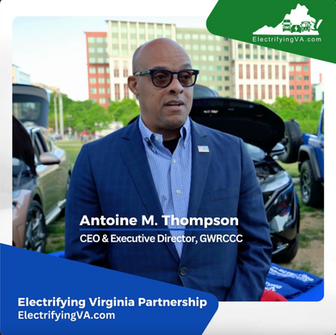
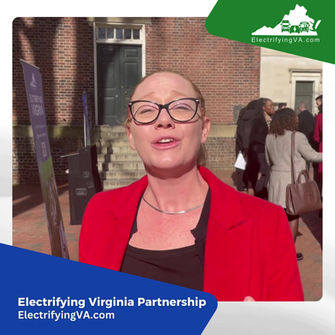
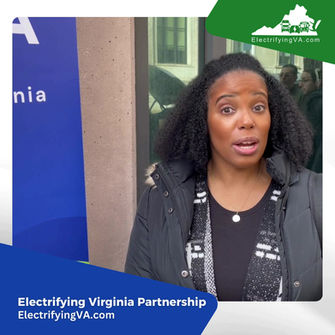

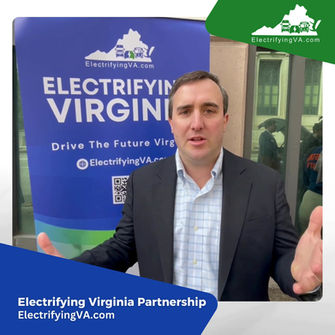
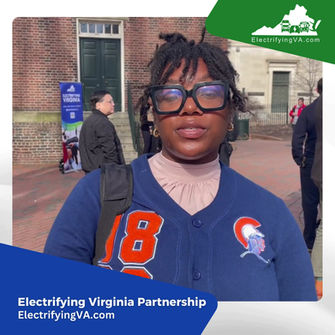
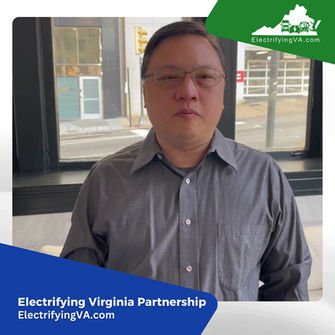
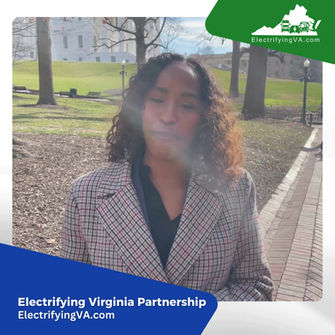
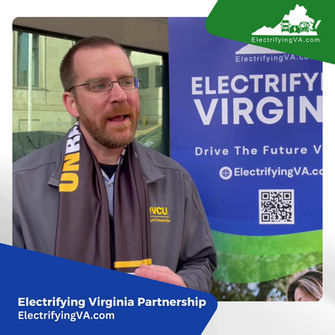
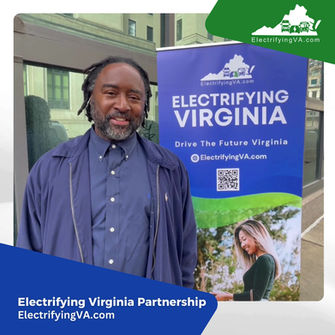

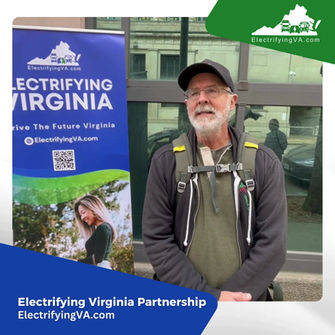

.png)




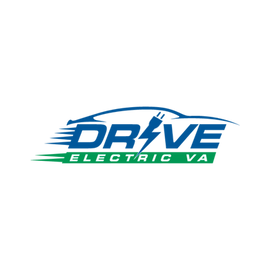














.jpg)






